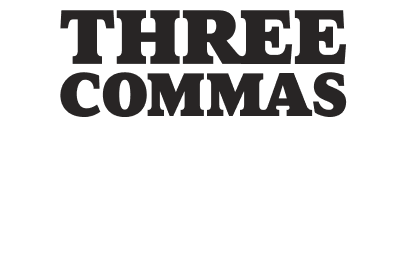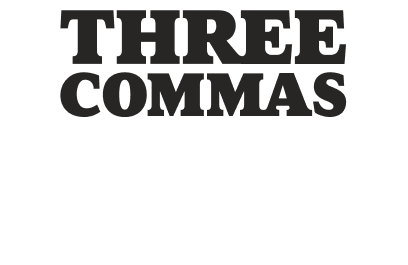Being diagnosed with adult attention deficit disorder (ADD) came as a surprise to Mark Bradford, a Hollywood native and first-degree black belt.
At first, the ADD was no big. Mark was always active since Day One, which meant that he barely noticed anything wrong. His childhood was uber-athletic, including participation in baseball, basketball, and Okinawan karate.
He began his career in law enforcement, learning -- and then eventually teaching -- defensive tactics. He eventually wound up in working in Army corrections.
“Being in the prison system, the ability to protect yourself is a big thing,” he says. “So wherever I was stationed, I would find a martial arts school, and I would train. Wherever anybody was training, I was there just to keep up, to know what was going on.”
After that, he became a federal agent, stationed in Albuquerque, New Mexico. That town, by coincidence, is the mecca of mixed martial arts (MMA) trainers and students. That’s also where Mark discovered Brazilian jiu-jitsu.
“[MMA superstar] Greg Jackson has built the biggest MMA training facility in the world there,” Mark says of Albuquerque, “So I’ve been tied into that community ever since the early 2000s.”
As a program manager for Defense Tactics and Physical Fitness, Mark evolved the agenda into an MMA-based discipline.
Even at this point in Mark’s life, he was constantly in physically active mode; the ADD was barely noticeable. For his last duty assignment, though, he took a desk job back at headquarters, as an equipment manager. That’s when the torture began, and when the ADD made itself known.

“That job had me locked in a vault, behind a desk for eight hours a day,” he says. “That’s because I was dealing with a lot of classified material, and writing technical reports and manuals. At first I was fine, but after a few months in the position, I could not function, and I didn’t know what was wrong with me. That’s what led me to go to the doctor and get diagnosed. Up until that point, I had always led an active lifestyle, so [the ADD] never really bothered me or manifested itself. I thank martial arts for that. It’s been a blessing in my life.”
Today, Mark owns and runs three iconic Legends MMA facilities training sites. He has has since repositioned them as a launching pad for the most promising martial artists who are ready to go to the next level professionally. Those who are just in it for the kicks are welcome too.
“We’ve been in business here about five years,” he says. “We now have three locations here in Los Angeles: two that I own myself and one that is an affiliate school, run by one of my students. And then I have affiliate schools in Arkansas and in New Mexico.”
That’s more like it -- making a living while not being forced to sit still.

“It’s excruciating to have to sit in an office and not be able to function,” he says,”especially when I’ve been relatively successful my whole life. Not being able to function and not being able to perform to my own expectations or my supervisor’s expectations, and not knowing why -- it felt like I was going insane.”
Although Mark is the big boss, he still makes it a point to get out from behind the desk and mingle and tangle with the crowd; in fact, it’s crucial.
“When I’m sitting behind a desk, I really have to make an effort to concentrate on what I’m doing,” he says. I have to be doing something that I am 100% invested and interested in.”
Of course, the ADD does not disappear. It’s still a factor in Mark’s life, and attention has to be paid to it.
“I still have to deal with it,” he says, “but I don’t have to deal with it for the majority of my day. For the last four years, I’ve been teaching martial arts just about every day and have not gone back on my meds at all. No need for meds.”
How has all of this success changed Mark as a person?
“I’m not sure that it has,” he replies. “I was once given a piece of advice from a successful martial arts school owner: be friendly to your customers and your students, but don’t be friends. He said, ‘be friendly, treat them right, and do the best you can to serve them, but at the same time, understand where the line is, because business is business.’ I came out here with that mindset, but I couldn’t maintain it. Everyday, I’m on the mats wrestling with my students. It’s as close as you can get to a person physically. When you’re on the mat everyday, rolling and wrestling and sparring with your students, that close, it’s hard not to build relationships with them.”
So not every piece of business advice is always applicable to every entrepreneur in every situation.

“I’m happy that the business that I have has attracted so many genuinely good people,” he says. “I consider each and every one of them friends of mine. Outside of the academy, we hang out together, and I consider every single one of them friends. I think -- now-- that’s what has made my business so successful. And I think everybody feels it. We are really, truly like a big family. We care for each other inside and outside of the gym. People show up to the gym on their days off, just to hang out. I think that says something about what we’re doing here. I’ve just been very lucky to attract all these people. I try to treat everybody in the way that I would want to be treated.”
The long journey was restless, but that hyperactivity led Mark to what he ultimately needed.
He says, “The martial arts lifestyle, with its discipline and physical nature, is a way of life for me.”
Click here to find out more about Mark and Legends MMA. 


